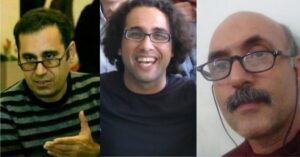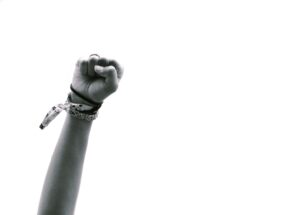The following is based on a communication written by the UN Special Rapporteur on Human Rights Defenders and other UN experts to the Government of Iran on 26 November 2024. The communication remained confidential for 60 days before being made public, giving the Government time to reply. The Government responded on 12 February 2025, which was recently translated and made available.
This is a shorter version of the original communication.
BACKGROUND
Topic: the conviction and prison sentence of Mr. Taher Naghavi, a lawyer and ethnic minority rights defender, whose treatment in prison and limited access to hospital care have raised serious concerns.
Mr. Taher Naghavi is a lawyer and human rights defender, who has represented political prisoners and has been actively involved in defending ethnic minorities in Iran, especially Azerbaijani Turks. He also serves as the director of the Azerbaijani Literary Association in Alborz Province. Additionally, he is the editor-in-chief of two weekly publications focused on Azerbaijani cultural and social issues and heads the cultural institute “Rahpooyan Andisheh Ostad Shahryar”.
Concerns at the crackdown on lawyers and minority groups has been the subject of a communication sent by Special Procedures on 4 October 2022 (IRN 20/2022).
ALLEGATIONS
On 6 February 2024, Iranian security forces reportedly searched Mr. Naghavi’s home, seizing electronic devices belonging to him and his family. He was subsequently charged with “propaganda against the state” and “collusion against national security” and detained. During his detention, he allegedly spent over forty days in Ward 209 of Evin Prison, where he was reportedly subjected to physical assault, sexual harassment, threats, and denied access to a lawyer.
In July 2024, Evin Prison officials reportedly filed additional charges against Mr. Naghavi in Branch 4 of the Evin Prosecutor’s Office for “disturbing public order” and “insulting prison officers”, following an alleged altercation with a prison officer. In response, Mr. Naghavi filed a counter-complaint, alleging assault and unlawful actions by the officers. Both cases were ultimately suspended, halting prosecution.
On 20 October 2024, Branch 15 of the Tehran Revolutionary Court sentenced Mr. Naghavi to a total of six years in prison, five of which for “gathering and collusion against national security” and one for “propaganda against the state”.
He was also given supplementary punishments, including a two-year travel ban and a two-year prohibition from joining political parties. Mr. Naghavi has appealed the case, which is reportedly now under review in the appellate court. In November 2024, after refusing to wear prison clothing and restraints, Mr. Naghavi reportedly faced retaliations, such as lack of access to hospital care. This was allegedly not the first instance of restricted medical access. While in detention, his health conditions have reportedly significantly deteriorated, and concerns about his health remain to date. Although Iranian prison doctors have reportedly recommended an MRI and specialist care, Mr. Naghavi has not been transferred to a hospital. Additionally, he has allegedly been held in wards with prisoners considered dangerous, putting his physical integrity at risk.
CONCERNS
In the communication, we express profound concern regarding the conviction of Mr. Naghavi, which appears to be linked to his work as a human rights lawyer and his peaceful advocacy of minority rights. We are also deeply concerned that his prison term has reportedly worsened his health, and that he is deprived of access to adequate medical treatment. It is also alarming that he has reportedly been subjected to physical assault, sexual harassment, threats and allegedly been beaten by prison officers in detention and placed in a ward with dangerous prisoners, raising serious concerns about his safety. In the light of several communications on related matters sent to the Iranian Government in past months, these actions seem to reflect a broader pattern, indicative of a crackdown on lawyers and minority groups in Iran. Such practices trigger a serious chilling effect on lawyers, human rights defenders and minority groups, deterring or impeding them to carry out their work.
Should the allegations be confirmed, they would violate article 9 of the ICCPR, which enshrines the protection of the right to liberty and security of a person and establishes that no one shall be deprived of his or her liberty except on such grounds and in accordance with such procedure as are established by law. Certain allegations would also conflict with the State’s obligations to treat arrested and detained persons with dignity and humanity, in line with articles 7 and 10 of the ICCPR. The allegations would also constitute a violation of article 19 of the ICCPR, which guarantees the right to freedom of expression, which can only be subject to limited restrictions. In this regard, we wish to reiterate that the Human Rights Committee has held that an attack on a person because of the exercise of his or her freedom of opinion or expression, including arbitrary arrest, torture, threats to life and killing, is incompatible with article 19. We are also worried about the negative implications these violations have on the freedom of expression in general, including through the chilling effect on individuals, in particular women and girls, who wish to express themselves, demonstrate peacefully, and participate in public and political life in Iran.
We wish to recall that according to international standards, States must guarantee that those who practice law can do so free from intimidation, obstacles, harassment, or interference. The free exercise of the legal profession contributes to ensuring access to justice, oversight of state power, protection of due process and judicial guarantees.
We remind the Government of Iran that, according to the UN Basic Principles on the Role of Lawyers, governments have the duty to ensure that legal professionals are able to perform all of their functions without intimidation, hindrance, harassment or improper interference, including threats of prosecution or administrative, economic or other sanctions for any action taken in accordance with their recognized professional duties, standards and ethics (principles 16 and 17).



